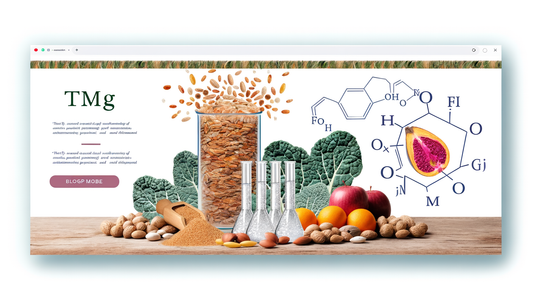Key Takeaway:
Scientific evidence points to potential benefits in strength, endurance, and muscle recovery, alongside health advantages like cardiovascular protection and improved liver function.
In the quest for optimal fitness and performance, athletes and fitness enthusiasts are constantly on the lookout for the next best supplement.
Trimethylglycine (TMG), also known as betaine, has sparked interest for its purported benefits on exercise performance and health. Here we'll delve into what TMG is, its benefits for exercise, and its health advantages beyond the gym.
What is TMG?
TMG, or betaine, is a compound found naturally in the body and in certain foods like beets, spinach, and whole grains. It plays a vital role in methylation processes and the metabolism of homocysteine, a substance that can become harmful if present in high levels in the blood. TMG has gained attention for its potential to enhance athletic performance, but what does science say about its effectiveness?
TMG and Exercise Performance
Research into TMG's impact on exercise has primarily focused on its effects on strength, endurance, and muscle mass. Studies suggest that TMG supplementation could improve muscle power and endurance, possibly by aiding the body's creatine synthesis.

Creatine is crucial for energy production in muscle cells, and its enhanced synthesis can lead to improved performance during high-intensity activities.
Additionally, TMG may promote cellular hydration, helping muscles resist stress from exercise and aiding in recovery.
It might not be your typical 'first choice' when you see other people pre-loading or post-loading up at the gym but it's definitely worth exploring.
TMG and Health Benefits Beyond Exercise
TMG's potential benefits extend beyond the realm of exercise. It has been studied for its role in reducing homocysteine levels, which could, in turn, lower the risk of cardiovascular diseases.
TMG has also shown promise in improving liver function and protecting against fatty liver disease, making it a supplement of interest for overall well-being, not just for those seeking to improve their fitness.
Comparison with Other Workout Supplements
Compared to other popular workout supplements, TMG offers unique benefits related to muscle hydration and possible cardiovascular health improvements.
While creatine and beta-alanine are supported by more extensive evidence for their effectiveness in enhancing performance and muscle mass, TMG can complement a well-rounded supplement strategy, especially for individuals looking to optimize methylation processes and manage homocysteine levels.
User Experiences and Anecdotal Evidence
Evidence from fitness forums and blogs suggests many users notice improvements in endurance and recovery when supplementing with TMG.
While personal experiences provide valuable insights, always discuss options with your health care provider.
So, worth it?
TMG appears to be a promising supplement for those aiming to boost their workout performance and support overall health.
Scientific evidence points to potential benefits in strength, endurance, and muscle recovery, alongside health advantages like cardiovascular protection and improved liver function.
Before adding TMG to your supplement regimen, it's advisable to consult with a healthcare provider to ensure it aligns with your health goals.
With the right approach, TMG can be a valuable component of a comprehensive approach to fitness and health.






